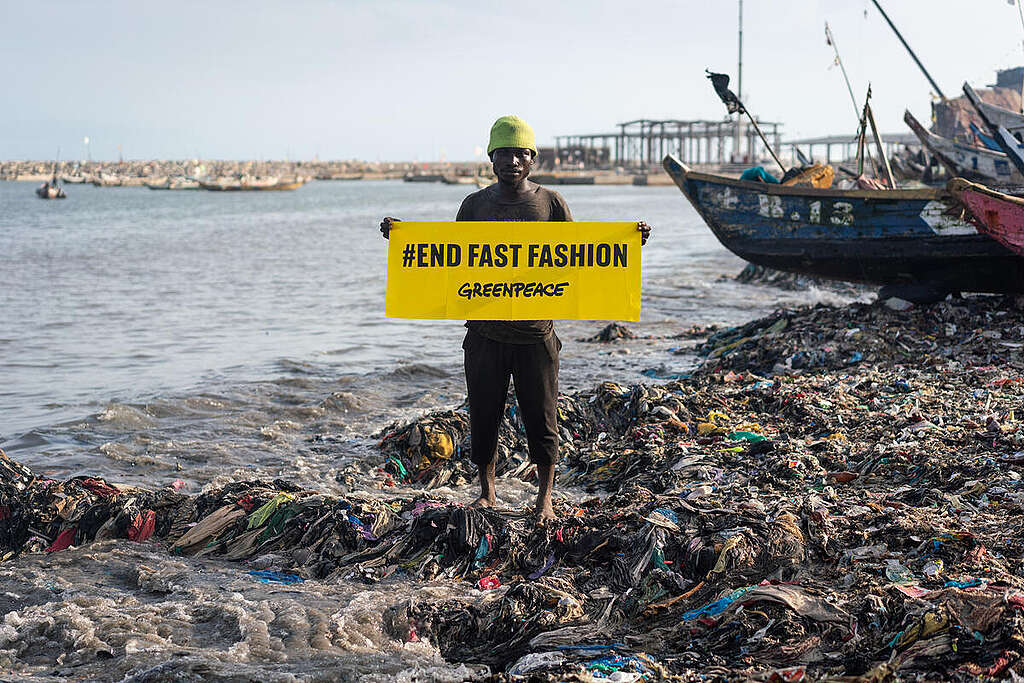A shocking new report by Greenpeace Africa and Greenpeace Germany revealed the alarming scale of environmental and public health damage caused by the global second-hand clothing trade in Ghana. It exposed the devastating impact of discarded clothing from the Global North (much of it fast fashion) on its environment, communities, and ecosystems
Millions items of clothing are received in Ghana every week – but nearly half of these clothes are unusable and end up in informal dumpsites or burned in public washhouses, leading to severe contamination of air, soil, and water resources, putting the health of local communities at risk.

Second-hand clothing trade is a common practice in many other African countries, including Kenya, Nigeria, Tanzania, South Africa, and Uganda. The decline in the quality of second-hand clothes is evident elsewhere on the continent too. In 2021, about 458 million of the 900 million used clothing imported in Kenya were worthless; more recent data suggests that Kenyan traders part with approximately 20-50% of clothes purchased due to their flawed condition.
The Global North's fashion addiction is fueling environmental disasters across Africa. Here are four activists from the continent pushing back…
Chemitei Janet (Kenya)
Chemitei Janet is an environmentalist and slow fashion educator passionate about social and climate justice, with experience in environmental education and sustainable waste management. She uses her social media platforms to highlight the impact of the fashion industry in Kenya, encouraging mindful clothing habits. Chemitei aims to share African stories and foster youth development through creative sustainability. She serves as the youth chairperson of Clean Up Kenya and is the Africa Regional Coordinator for Threading Change.






